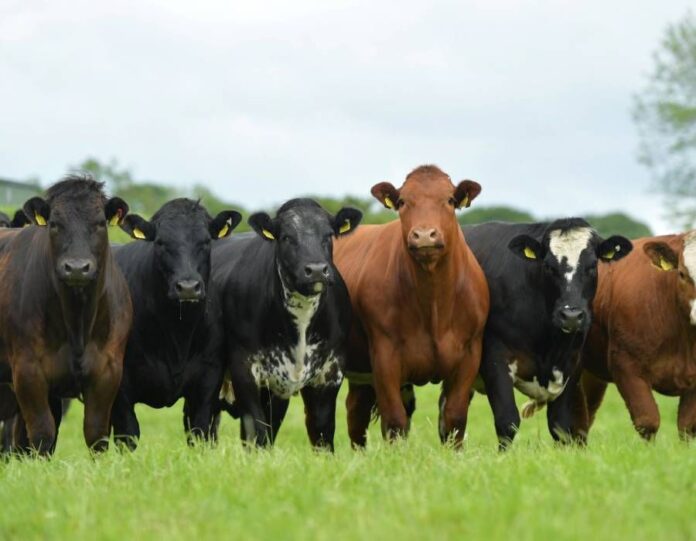Livestock Farming Tips
In this article, Nick Green provides livestock farming tips and ideas to increase business.
With population growth, the demand for livestock products, such as milk, eggs and meat, has grown exponentially.
Urbanisation is another factor that has led to increased demands. Other factors, such as health consciousness amongst youth, have also led to the rapid increase in demand.
We could also add that technology has played a significant part in the growth of this field as the supply chain has become so strong.
Livestock production and sale are significant for boosting and strengthening rural markets. It has been amongst Ireland’s most profitable enterprises.
Hence, I will share in detail ideas to help you increase business in this field.
-
Start small:
Starting a large livestock farming business at once can be a really poor business decision, as managing a large farm with no experience can lead to several losses.
It makes sense to start with a dozen animals, understand their care and feeding habits and then slowly grow your farm from there.
You will also be able to grow your business connections and line up more distributors once you have gained some years of experience in this field.
Even if you incur losses initially, they will be small based on the scale of your business, which would not be detrimental to your more extensive business plans.
-
Adopt livestock guard dogs:
When you have a large livestock farm, it is tough to guard every part of the property from predators. Installing cameras can help you record an event, but you must deploy vigilant guards to protect livestock from predators.
You can do this with the help of livestock guard dogs such as the Great Pyrenees and Anatolian Shepherd, which have been used for centuries to protect your animals from wolves and other predators.
Getting a purebred version of these dogs will help you gain maximum benefit; hence, look for a reputable dog breeder website to choose the right dog breed to protect your livestock and offer the best security to the farm.
-
Use drones to monitor the farm:
If your livestock farm is situated on a hill, drones can be beneficial in monitoring it. There are special drones created to monitor just livestock farms using thermal and multispectral technology, which can be very useful.
They can monitor livestock, grass, and areas in the field impacted by pests and weeds. These drones can also spray pesticides and fertilisers on the farm.
This can be costly initially, but the technology can help you manage the farm better and make it secure and well-monitored.
-
Choose beneficial livestock:
There are many different forms of livestock farming you can choose from. You can opt for dairy, the most profitable farming enterprise in Ireland.
Irish dairy farmers are known to be competitive globally, which can give you an edge. On the other hand, you can find the greatest number of cattle farms in Ireland, which could also be something you should think about.
The pig farming sector is considered an important economic generator for the Irish, as is by sheep production, which operates on hills and lowlands. Other niche farming options in Ireland, such as equine or goat, could also top your list.
Choosing the right livestock farming is the first step toward establishing a successful business.
Understand the requirement of each of these farming types and the one which makes more sense to you based on the capital and resources available to invest.
-
Gain more knowledge:
To be a successful farmer, you need to develop a thirst for gaining more knowledge every year.
Technology keeps changing every year, and you can learn much to use it to grow your business.
You can enrol to get trained, read books, do online research, and learn more about livestock farming. Your learning should never stop, which will help you stand out from others.
-
Focus on animal health:
Healthy animals mean improved productivity. You should always focus and invest to ensure your animals remain healthy.
Understand the diseases they are susceptible to. Your region also may be a factor that can cause increased chances of some diseases.
You need to be aware of it and take all precautions possible. Suppose you have imported certain animals from other countries that require particular medication. In that case, you need to get a supply of that handy on your farm in case such a situation arises.
You should also ensure animals are not kept in crowded stalls, which can cause the spread of disease. If you have successfully been purchasing livestock from an animal supplier, then stick to that.
Keeping your livestock healthy will improve your farm’s productivity and increase income.
-
Hire a nutritionist and a veterinarian:
It is impossible for the animals to never fall sick, and, therefore, it is important to do all the basics right when it comes to animal health and nutrition.
A healthy diet also ensures better immunity and lower chances of being sick, while a herd health plan is essential when it comes to disease control, prevention and management.
The bottom line:
The livestock farming business can be lucrative but comes with many challenges. There are many stages of planning and execution involved.
You will have to deploy enough resources to manage the entire process. It is normal to make a few mistakes initially and learn from them.
The tips offered above will help you a lot through the process. Your farm is your investment; hence, you need to take adequate and effective measures to make it profitable in the long run.
Other articles on That’s Farming:





